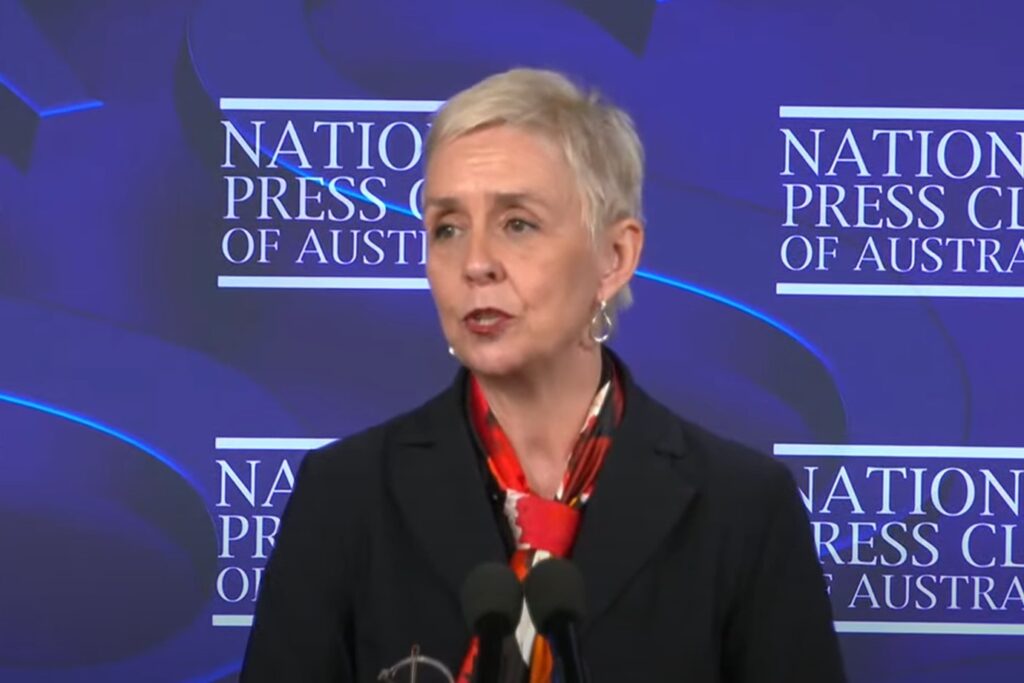Australia’s progress on the national plan to end violence against women and children has been handed down in Domestic, Family and Sexual Violence Commissioner Micaela Cronin’s inaugural yearly report card.
On Wednesday afternoon, Cronin addressed the National Press Club of Australia, focusing on three aspects of the report, including the importance of listening to lived experience, engaging men in the conversation and the need to build the capability of our systems to respond to the crisis we are facing.
The National Plan to End Violence against Women and Children 2022-2032 is the overarching national policy framework guiding actions towards ending violence against women and children over the next 10 years.
Cronin commenced in the role of Commissioner pn 1 November 2022, and notes in her speech that Australia is only one of three countries in the world that has established a national domestic, family and sexual violence commission.
“We have come a long way in talking about domestic violence and equating it with a black eye,” Cronin says.
“We are much more sophisticated in understanding that it is now, now about patterns of behavior and talk about coercive control and the need to talk about social and systemic entrapment. So language is important.”
Expanding on the importance of language in the conversation, Cronin says we need to be using more active language, such as using the term ‘men’s violence’ instead of ‘violence against women’.
“We talk about missing and lost women, and children, rather than women who have been actively disappeared, and murdered,” she says.
“We need to be stronger and clearer and use less passive language.”
Cronin says as well that we are not talking enough about sexual violence and incest within the national conversation on domestic and family violence. Rarely do we use the word ‘incest’, she notes, and there are clear intersections between sexual violence and DV that must be addressed better.
Within the national plan, Cronin also notes that the word ‘woman’ is used four times more than the word ‘men’, highlighting Australia’s gap of engaging men within the domestic and family violence conversation.
“We need to be having very different conversations with men,” Cronin says.
“We need to be listening to what communities women and children mean when they say we need greater accountability. We need men to be held accountable in ways that they are not being at the moment.”
“We are watching a generation grow up with access to online misogyny, pornography, hate speaking away that we’ve never seen before. And we’re really struggling, as a community, with how to deal with that,” she says, adding that it’s vital for us to “get better at talking to those young men” and including them in conversations.
The final piece of the puzzle that Cronin addresses is in regards to better understanding our systems’ capabilities and capacity to handle the nation’s crisis of domestic and family violence.
She says we “desperately need” more data surrounding men and their use of violence.
“One of the things that we have also consistently heard is that despite having seen very, very significant increases in funding over periods of time– over the last decades really– our service systems are overwhelmed, stretched beyond capacity,”says Cronin.
“They are struggling to hold on to staff, and they are really at wit’s end about how they are going to meet [people’s] needs,” she says, adding that along with building the capacity of the system to respond to domestic violence, we must focus on understanding the demand better as well.
“We are an incredibly diverse country,” she says. “What’s going to work in a remote Aboriginal community is very different from what’s going to work in Redfern, than what’s going to work in a capital city.”
“We need to be paying attention to and listening to those communities about what’s important for them, what’s going to change the dial for them.”


